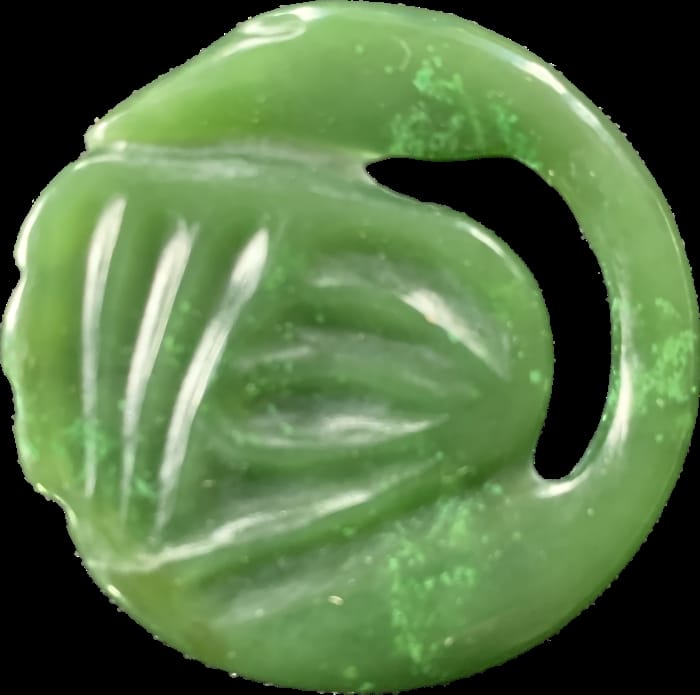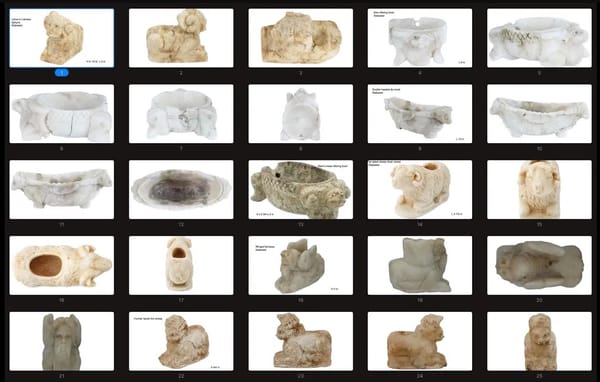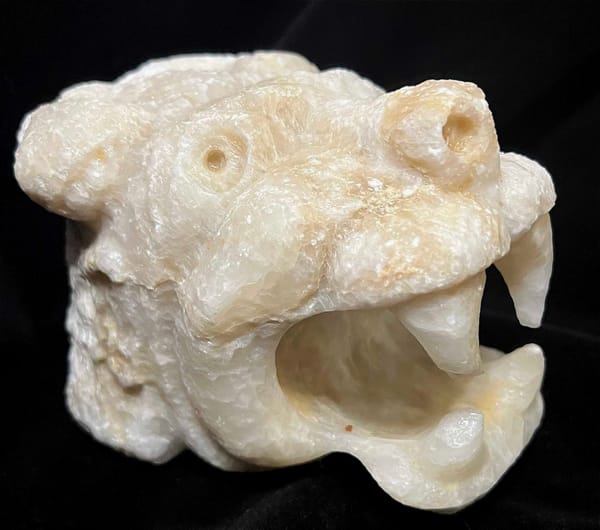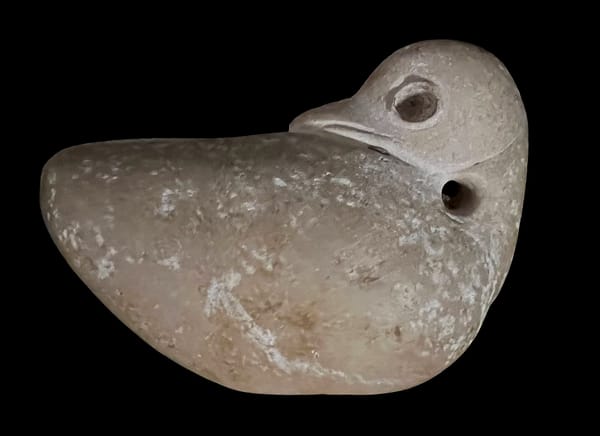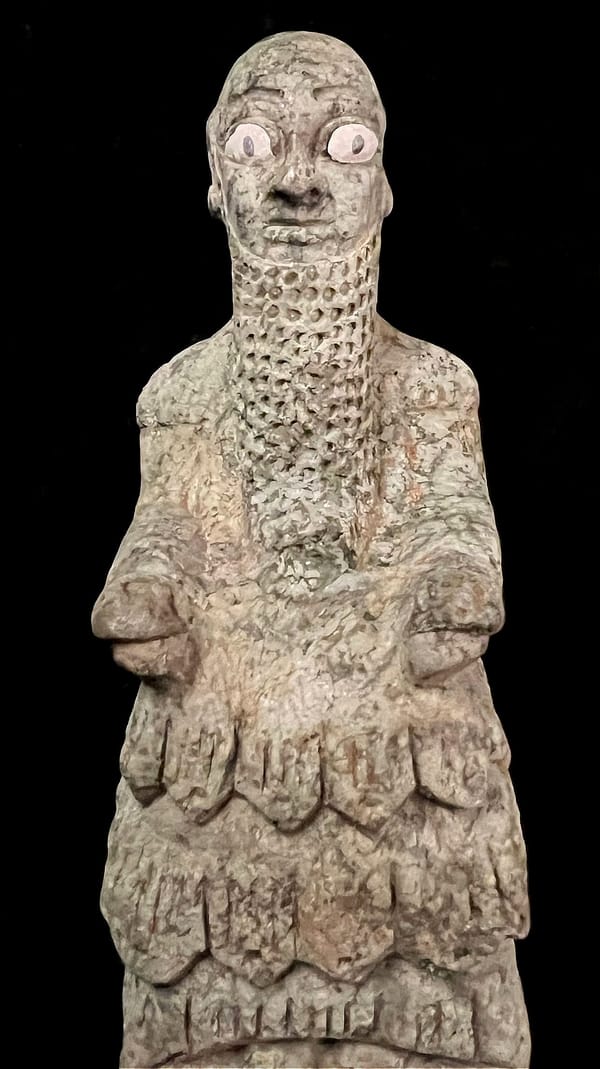The Farming Trap
Dr. Josh Stout discusses what he calls The Farming Trap - how farming led to disease, famine, war and slavery.
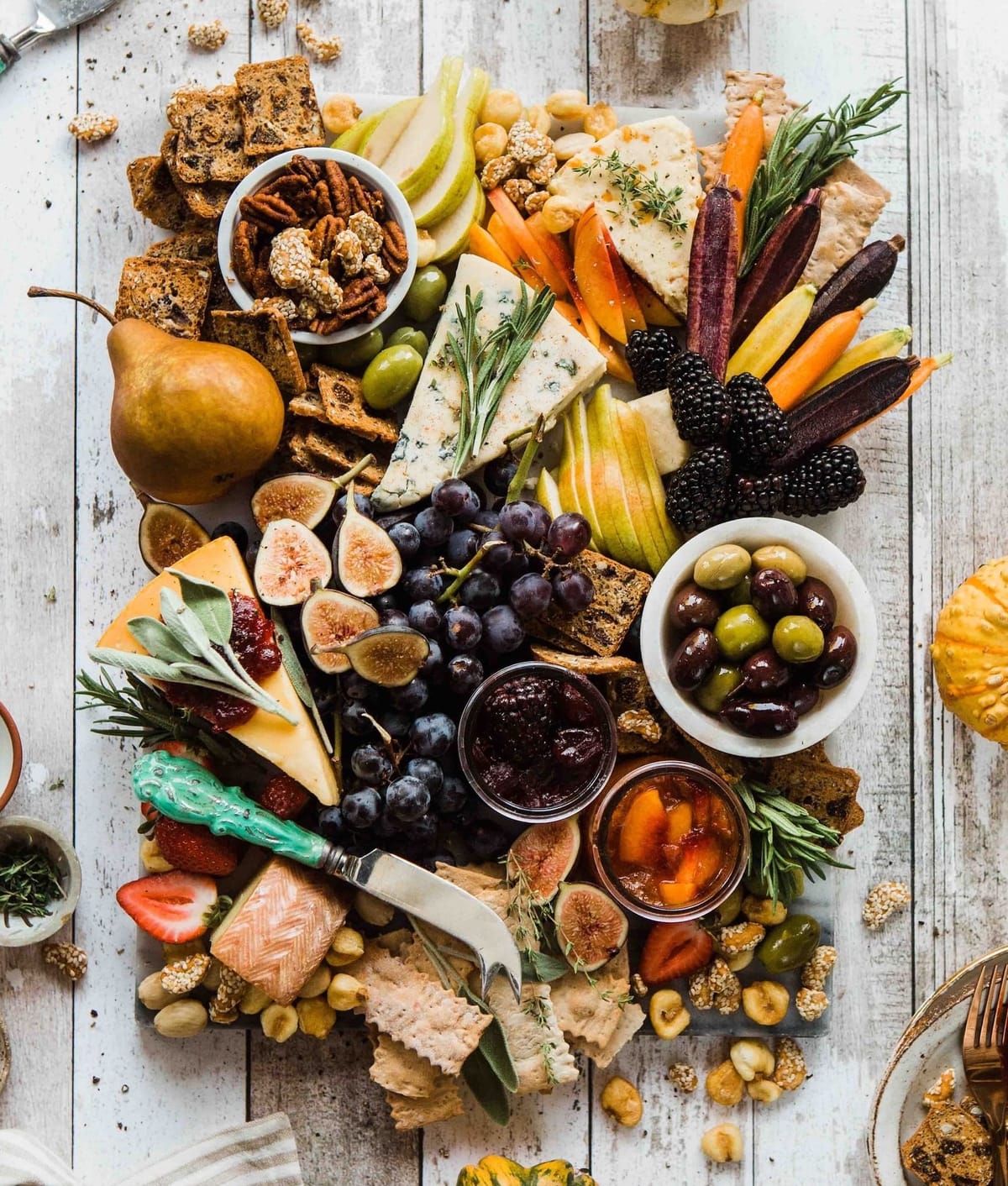
How farming led to disease, famine war and slavery.
Please scroll down for links below the transcript. This is lightly edited AI generated transcript and there may be errors.
Eric 0:11
Today is Friday, October 13th. This is episode five. Hi, Josh.
Dr. Stout 0:17
Hi, Eric. How you doing? So I am going to talk about the transition to farming and the farming trap and what that means. But we're going to start off again sort of where we left off last time, which was the development of modern humans and how we developed abstract thought and the ability to make advanced tools, and that this coincided with art and probably a transition to what we would call modern language in the sense of being able to convey abstract ideas. So we're using abstract ideas in our language. We're putting them on the walls of our caves, and we're using them to understand the world around us and improve our technologies. So fishhooks and needles that I talked about last time. So all of this is happening at sort of the end of the middle Stone Age. Middle Paleolithic is about 130,000 years ago in a period called the Eemian interglacial, and it was super warm then. So we're in the middle of to glacier glacial times and all of the genes that had sort of been happening all over Africa, around skulls, the beginning of chins, these language genes, they're all coming together and mixing because the population is doing really, really well. And so during this time, all of these characteristics come together into the into the modern human with a with a round forehead and a chin and a flat face and, you know, a smart brain with, you know, thinking thoughts that they can paint on the walls. All of this is happening roughly the same at the same period of time. And then stuff gets bad and the glaciers come back. And this is a colder period than any before. Each each wave of glaciers goes further and is colder than the last one.
Eric 2:03
So we had been we had been making steady advances both both in our physiology as well as in social group dynamics. Right. Well, this is a and then we're then we're slammed by a new…
Dr. Stout 2:17
A new thing. So this this is this is this is.
Eric 2:19
Ice Age, essentially.
Dr. Stout 2:20
Yeah. This is a this is a theme in our history that things are good. We expand our populations and usually associated with getting colder. Things get really bad and it gets dry and and we have to change. So that happened the first time when we went on the Serengeti. It happened a second time when the the ice ages started 2 million years ago is when we got the big brains and then it happened again at the end of the Indian interglacial. And so now it was time to move because our population was crashing. We we were, we were everyone was dying because there was there was no water. The game was dying. All the food was dying. And so waves started to leave Africa and there was probably multiple waves with one leaving about 100,000 years ago that brought these new genes the abstract thought to the Neanderthals. But in that first wave, the Neanderthals won and the humans disappeared, leaving Neanderthals with a few new capabilities. So you start seeing Neanderthal art at about this time, you see handprints on the walls. So there definitely seem to be something that humans had invented that allowed this kind of abstract approach to burials. The idea of of of thinking about the world outside of yourself, not purely as, you know, you yourself, but you know what? What are what are the animals I'm chasing? Can I, can I represent them in some way? How do I talk about them? They seem to have now left Africa. And then the other thing they got was some of the human mitochondria. So that's how we know this is. It actually happened. We can find human mitochondria in the Neanderthals, but all the humans disappeared. And then again this happened again around 60,000 years ago.
Eric 4:06
Now we were at this point Homo sapiens.
Dr. Stout 4:09
We were Homo sapiens by now. Yeah. So certainly we had.
Eric 4:11
Tried once, we interbred a bit and then just couldn't make it.
Dr. Stout 4:16
Couldn't make it. Yeah. And so then we tried again 60,000 years ago and our populations right now are at the lowest point ever. So Homo sapiens has been reduced to almost nothing. There is, you know, maybe a few hundred thousand of us in total and 60,000 of us over a period of probably a couple thousand years managed to leave Africa, interestingly, you know, through through the Middle East. So, you know, Egypt, Israel, Oman, Saudi Arabia, these are the places we're moving into. And it's where we meet the Neanderthal and interbred with them and then quickly start wiping them out.
Eric 4:51
This is the second time.
Dr. Stout 4:52
This is the second time our second lead. So now we have entered into an ice age world. As we're as we're moving into it, we wipe out the Neanderthals, they're gone.
Eric 5:03
Is it the change between the first time and the second time that allowed us to wipe them out instead of just die?
Dr. Stout 5:08
Who knows, could have been luck. It could have been improved. Technology. There's some evidence that we fought a war for 5000 years in one of the valleys in France and actually developed something like arrows there are small little triangular tips that would only make sense for something like an arrow, maybe a dart, but more probably an arrow, a super advanced technology that would been very useful, useful against the Neanderthals. And even that technology didn't allow us to survive there long enough, but they didn't push us entirely out that time. And so it was probably a matter of who was evolved for a particular habitat. We were Africans, so we were Africans with dark skin moving into a cold area that was very difficult for us. We were acquiring some Neanderthal genes. They helped us. We there're some groups in the Middle East that acquired a very pale skin that actually didn't move into Europe until about 4000 years ago coming from Middle East. And we acquired some immune system improvements from Neanderthals. So things that will be helping us in a new world. But we did not change our language genes. They were all strongly selected for the ones we brought with us out of Africa did not merge with Neanderthal language. They they stayed purely human because any change was a bad change. And so we have this collection of genes. We moved into the new world. We used our sophisticated technologies to get us through these hard winters. We were living in caves, often particularly in Spain, south of France. Other groups were moving to Indonesia, also living in caves. So we find the art actually, you know, perhaps from some racist preconceptions, but more probably just because the caves in Europe showed things like a mastodon, whereas the caves in Indonesia showed the same animals that still live there today. So we didn't assume they were older. And so we thought all of this old art started in Europe. But now we know that the earliest cave art is actually being found in Malaysia and Indonesia, in Sulawesi, and it shows the animals that still live there today because they weren't in the same kind of, you know, climate change as Europe was. Right. So Europe was in the middle of a major ice age with very different animals and huge pressure from the humans living there on those animals. And so they changed a lot after the Ice Age, where Indonesia is tropical, Malaysia is tropical. So these animals didn't change. And so what we see there is, is AI the first art, and we've only recently really within the last five years, realized that this is true, that it wasn't Europe, it was everywhere humans were going and everywhere where they lived in a place like a cave where you could paint on the wall and it wouldn't get decayed. I'm sure we were painting on everything we saw like trees, but the trees didn't last. So I only. Only the cave paintings survived. And you know, our preconceptions, whether it was all Europe. And now we understand it was everywhere we went. So it was these new technologies associated with the abstract thought, the ability to make art, with the ability to imagine the world around us in a different way. Presumably that allowed us to spread it into this very harsh world. We were a tropical species and we were moving into Ice Age, Germany, and it was very, very cold. We were looking at mile high glaciers. There were huge furry animals and people who are just as smart as us already living there who would also kill us. And we we beat them all. We we killed the cave bears in the caves. We moved into their caves. We killed them Neanderthals. We moved into their caves. And by 14,000 years ago, we were the dominant species.
Eric 8:48
And so we sound terrible.
Dr. Stout 8:51
We're also great. I mean, you know, we're so we're so flexible. You know, we were we're building these communities that live together and can survive under very harsh conditions.
Eric 9:01
And wiping out everything in our path.
Dr. Stout 9:04
That isn't us. Yes. And then and then fighting each other, I'm sure. But also, you know, learning how to build culture and to trade with each other. So there are trade goods that are now moving across thousands of miles already. So Jade is moving from the Alps to northern England or by by, you know, 6000 years ago. So we're we're we're building communities, we're building trade networks. And eventually, as the climate begins to warm again, we move into a whole new sets of abilities first, starting with growing grain. So around, you know, 10,000 years ago or so in northern Turkey, in Anatolia, near Mount Ararat, interestingly, the first wheat develops. It's just a weird mutation, you know, you have two parents? I have two parents. I have two sets of chromosomes from my two parents. We have six parents. It's not something that biology would predict. So it really just happened kind of weirdly, but it happens every once in a while, particularly in plants. Corn did something similar, and when it does, you get more genes, which makes bigger food. And if we cultivated, it can survive. It's not great if something's living in the wild because there's other factors on it. But once you find this wonderful, strange new mutation, you can keep it going. And so we used to think that we would start off with something like a city that would require agriculture to keep it going and that you would then get cities growing from the agriculture and you then have specialization and you would develop things like pottery and things like that. So it was farming, population, cities, technologies.
Eric 10:51
But that's not we.
Dr. Stout 10:52
Now are finding out that what happened in in Anatolia was actually ceremonial centers, were hunter gatherers were coming around, things sort of like a Stonehenge and living in these areas and wiping out the grain to the point where they needed new sources of food. And because they're always throwing their stuff into the same garbage heaps, the grains that grew out of this, they discovered they could eat it. They also discovered they could ferment it into beer. So what the really at the very beginning of time is beer, because if you if you throw the beer into the fire and dry it, you have bread. Or if you just let it rotten, sit next to you, it's beer. And so these these these these ceremonial parties were based on.
Eric 11:32
Through the wheat into the fire.
Dr. Stout 11:33
Well, you soak it because it's too hard. You can't just eat wheat, so you soak in some water so it's softer and then you think, oh, I can soften meat with fire. How about if I start softening my grain with fire? And it might boil, but it might solidify into this sort of burnt lump of stuff and you discover things like natural yeasts will make it bubble up and then it's tasty. And so it's it's a very short distance from soaking grain to seeing those bubbles to drinking it. And it's alcohol or burning it and it's bread. It's the same thing.
Eric 12:05
And it's been with us since almost the beginning of community. Right.
Dr. Stout 12:10
So the the these, these hunter gatherer ceremonial groups were starting with farming to make themselves beer for their ceremonies. But then because their populations were doing so well, they wiped out all the all the game around them. And so then they became obligate hunters. So they got farmers. They could no longer subsist on an eye on the wild game and they had to move to farming. And this is why it's a farming trap. Once you start farming, it's easy to live in a place and as a hunter gatherer, you're hungry all the time and that gets you out of the cave into the danger where all the nasty animals are. And then you go kill something and run back to your cave as fast as you can. Whereas if you're a farmer, you have food all the time, you have it stored. You can keep your grains in a place and keep them stored, but now you get all the other problems because you're living in one place, you no longer can move from place to place where there's a new game. So you've killed all the animals around you, and so now you're even more obligated to eat that grain. What happens when there's a drought? Your whole valley will die. What happens when there are a flood in your and your and your crops that are in the lowlands? Wash away again. The whole valley can get die. So the farmer's life becomes much more precarious. Our bodies shrink. We become smaller because when there's when there is a famine, only the only the smallest people survive because you need less calories to live. And so we went from hunter gatherers, you know, six foot tall with 1350 sick brains to farmers who were, you know, five feet tall. And our brains were, you know, 1100 keys over.
Eric 13:48
How much time.
Dr. Stout 13:50
Save 4000 years. 5000 years.
Eric 13:54
So this seems shockingly fast.
Dr. Stout 13:56
Yeah, well, it wasn't so much a genetic change as it was very strong selection, a lot of it could be what's called epigenetic changes where if you starve a mother, the offspring will have changes that are in the genes but can be actually inherited to the way you, you, you take in, you know, sugars and your metabolism works. All of these things can can be passed down even without a genetic change. And there are also genetic changes. So there was a very rapid selection for smaller people because we no longer had sources of high quality proteins because we were no longer hunters and we were stuck as farmers. And many of the myths that we have relate to this. So where we're building these communities, we're building the beginning of civilization, as at the same time we're putting tremendous pressure on ourselves. Our populations are growing, you know, doubling every hundred years or so. And so all of in a few thousand years, we have tremendously big populations that can only live by farming. We've shrunk and we've developed all of the evils of farming. So large populations living in the same problem in the same place, you have waste problems, right? You're drinking dirty water, especially once you get animals involved with it. So you're drinking the dirty water from them. So we have, you know, cholera and all these other diseases that are able to spread through communities. So we have real warfare. Up until this time, it would have been raiding probably for more women. Right. So if you have a a polygamist society, the old men tend to have all of the females and the younger ones need to get them somewhere. And so they will go raid the next door communities. And so we've always been doing this, but there was a transition with farming to something where you could actually invade somewhere and get real goods from it. You can steal their grain, they're stolen grain. That's a value you can carry back with you. You can steal their land as soon as you have their land. They're no longer hunter gatherers. They can't just leave and go to the next valley. You've taken something and you've doubled your production and you can steal the people, You can make them your slaves. And if you have slaves, you can now control a much larger production. You can have a bigger army and you can go do it again. And so you have the development of not just cities and city states used to get walls around your city to protect them with the farms outside, but the people can hide in the city until the, you know, raiders go away and you have goods worth stealing from your people to to to the grains, to the land itself. And all of these things are coming directly from farming. So our lives became in many ways much more difficult, where we're periodically starving to death. So every time we we we we have a drought roll to destroying our environment. Any place where farming starts, you see erosion because we've chopped down the forests and all the hillsides get denuded. And so you go from these lush forests to something that looks like Greece today, where you see open rocks everywhere because the soil just gets washed off the hillsides and you can see it anytime people move in, you see huge amounts of sediment happening in association with with pollen that you would associate with, you know, rise of agriculture in an area. So we're environmentally destructive everywhere we go from the very beginning, we wipe out the larger animals all around us and we destroy the soil. And so farming civilizations periodically collapse due to environmental destruction. For example, they think the Anasazi were weakened during a prolonged drought, not just because of the drought, but because if you live in a desert and you irrigate the desert, the irrigation itself builds up salt in the soil. As the water evaporates, it leaves the salt behind and there's nothing you can do about it. And the longer the drought lasts, the worse it gets. And so a whole civilization can collapse. And it's probably happened numerous times due to changes in climate. So again, climate driving the way we live is is always been part of the human experience and is very important to how we live, where we do and how we look the way we do so.
Eric 18:00
Is directly again, connected to farming.
Dr. Stout 18:03
To farming, yes. And with farming it becomes most important because we now we're trapped in it. There's no there's no getting away from it. And any time we have the ability to get away from it, we do until we trap ourselves again. So, for example, the Murray, when they go to New Zealand, they were farmers, they were, they were Polynesian farmers. They get to or Micronesian, depending on which group you want to put people in and they get to New Zealand and they immediately become hunter gatherers again because there's large, flightless birds everywhere and they can hunt them down and it's a great way to live and it only lasts a few hundred years. They wipe out all the large, easy to eat animals and they become farmers again. And so this is what we've done over and over again. We did it in the Americas when people first colonized the Americas, they were hunter gatherers. They wiped out all the all the all the mammoths and all the all the ground sloth. And when they all these large, easy to eat animals were gone, they moved to bison and other animals. But again, eventually they moved to farming and they ended up with sort of a permanent farming transition. Actually, it's interesting, some of the Native American groups, I would say, managed a more sustainable approach than most other groups have done, where they were able to have a a development of farming and not completely destroy the environment around them where they had managed burns in areas they kept forests for hunting that were not inhabited. And then they had areas that they did their farming with squash and corn. And so they were able to have a supply of food in that way. And so it was a really interesting thing that was developing, particularly in the Northeast, but in several areas where they had actually figured out a way to have the best of both worlds where you're not starving because you have a reserve from farming and you have the high quality food that a hunter gatherer can bring in because they hadn't killed all their deer and they hadn't killed all their moose and there was still forest bison larger than the plains bison wiped out as soon as the European settlers got here. But of course. Exactly. You know, again, we're terrible people, but every once in a while we figure out a way to live better and it really works and it becomes sustainable. Meaning you can keep doing it for a thousand years and you don't destroy everything around you, but you need a very productive, stable climate, for example. Right? We're moving into a new period. That's not so.
Eric 20:30
I assume you need a fairly limited population.
Dr. Stout 20:34
You have to keep your population in control. And you you can't have major changes to your habitat, so you can't go through it.
Eric 20:45
So it's all very delicate.
Dr. Stout 20:46
It's very delicate balance. You can't go through a 50 year drought. You know, it's going to be very, very difficult. And the first thing that's going to go is all of those animals you are working very hard to sustainably keep around you because now everyone's hungry and now you're really trapped.
Eric 21:03
Right now you need to farm more.
Dr. Stout 21:05
Now you need to farm more. And so this happens over and over again. And that's why I say in for example, in places like Greece where there's been, you know, the whole history of civilization, you have periods of farming with periods of huge amounts of erosion, followed by probably a collapse. So, for example, the Bronze Age collapse some people think was associated with with destruction of all the civilizations, and that this would have ended. Farming in particular areas lasted for hundreds of years. So the trees grew back and so the erosion went away and so the environment improved again. But then civilization comes back and everything gets denuded again. So these these these, these, these periods.
Eric 21:51
Round and round we.
Dr. Stout 21:52
Go, round and round, here we go. But with this sort of constant ratcheting forward, hopefully of understanding ourselves and making more sustainable cities and more sustainable environmental interactions, if we.
Eric 22:05
Have any way of keeping that knowledge over time, which we don't seem to be very good at. And well.
Dr. Stout 22:11
It's, it's interesting because we do.
Eric 22:14
Actually have deep.
Dr. Stout 22:16
Deep myths of this transition. So Jacob and Esau in the in the Bible, Esau was the hunter gatherer. You know, he was the he was the the hunter traveling in the wilderness. And he comes home hungry and Jacob says, Sure, I'll give you a bowl of porridge in exchange for your birthright.
And thus there are no hunter gatherers. So they traded a bowl of porridge for the birthright. They know this happened, and it's right there in the Old Testament. So you know, these these are things we we know about, right? We know about it in the Old Testament also, when when when Adam and Eve were kicked out with the first thing that they're they're forced to do is is Adam has to work for his food from the sweat. It was drought he has to farm Eden was hunting hunting and gathering now now Adam has to farm. Right. So these these are our myths. We totally understand what's going on. One of the most interesting ones is in ancient Egypt. So the Egyptian civilization starts around 5000 years ago. And it's not a coincidence that at that same time there was a an extended cooling period that made the Sahara become much drier there. And so hunting and gathering became more difficult because what had been something like the Serengeti, where the Sahara is dried out to the current desert and people had to move along the river. And the only way to get enough food living on a river was to start farming. And so they went from a hunter gatherer society to a river based farming society. Very quickly and became the Egyptian civilization. And in their myths they talk about how ra the sun God lived with the people, but they did not worship RA properly and he didn't get the respect that they needed. And so the eye of Ra, which is the sun, became sick, met the female goddess who is a lion, and she is the lion of the desert. And where she walks, everything burns and so she met, came and she burned basically what the Serengeti was and turned it into the Sahara. And when she met burned the Serengeti, everyone was dying. And so the people took red dye and they filled a lake of beer with it. They made a lake of beer. So again, beer at the transition to farming, they filled the lake of beer. They died it red and they tricked sediment into thinking it was a lake of blood. And she in her anger at their disrespect for Ra because she was she was the son and she was raw and she was sick and she was the lioness. Powerful female, Right. Lionesses. They're the ones who actually do the hunting. She's the one who is is representing hunting and gathering in this this idea. So she goes from a hunter, female drinks this beer beginning of agriculture beer passes out and wakes up is half hour the the cow and holding the son in her horns and half or eventually becomes ice is holding the son in her horns. So this is this is this is a transitionary period that we have very much in our religion, in our mythology. We understand that this was a trap we got ourselves into. This is not seen as a wonderful moment. This is seen as a really hard moment. And, you know, many, many, many religions have the idea of things going downhill. And I think it is very much based on this idea of the transition from Eden to the transition to eating of the fruit, of the tree of knowledge and becoming farmers and everything, becoming hard and no longer being able just reach out and pick the fruit from the tree. But you now have to work for it.
Eric 26:07
I never thought of this this way.
Dr. Stout 26:09
Well, thank you. I that that's where I wanted to get to with with the farming trap is, is trying to explain how our beginning understand thing gets us out of Africa gets us into a hunter gatherer society spreading all over the globe with our with our art, with our technologies, wiping out everything as we go And then as as the ice age ends, farming becomes possible. And because we're lazy and because we don't want to be hungry, we turn to it. And that's the trap.
Eric 26:44
Little could we have known.
Dr. Stout 26:46
I think we do know. I think we always know.
Eric 26:48
Before before we even started farming, we.
Dr. Stout 26:52
God told us not to eat that fruit.
Eric 26:55
But indeed he did.
Dr. Stout 26:58
We knew because we did it over and over again, we would become farmers, we become hunter gatherers, and then we become farmers again.
Eric 27:07
We're lazy, we're lazy.
Dr. Stout 27:09
And we know and we will always trade being hungry for our.
Eric 27:13
Birthright. Farming life from what you say is the harder life it is.
Dr. Stout 27:17
But you're not hungry.
Eric 27:19
So that's not lazy. We're just afraid of being hungry. We don't want to be hungry. Yeah, that I can understand.
Dr. Stout 27:25
Yeah. Okay. So it's not lazy. It's actually. Yeah, Yeah. A hunter gatherer has more free time, and it's. And it's a better activity, you know? What would you rather do? Like, go for a long walk and shoot a bow at a deer and then carry it back and eat it or dig holes all day?
Eric 27:40
Yeah. Backbreaking work. Yeah.
So next time. Yeah.
Dr. Stout 27:45
Next time we'll have to think about where we go from farming. We might talk about adaptations. It's done to our bodies. Adaptations. It's done to our societies.
Eric 27:54
I would love to. I would love to start getting to how, you know, these adaptations inform the decisions we have to make today with the bodies we have right now.
Dr. Stout 28:06
Absolutely. We're totally we're absolutely getting there. Yes. All right.
Eric 28:08
Excellent. Well, thank you very much. See you next time.
Dr. Stout 28:11
Thank you.
Theme Music
Theme music by
sirobosi frawstakwa

